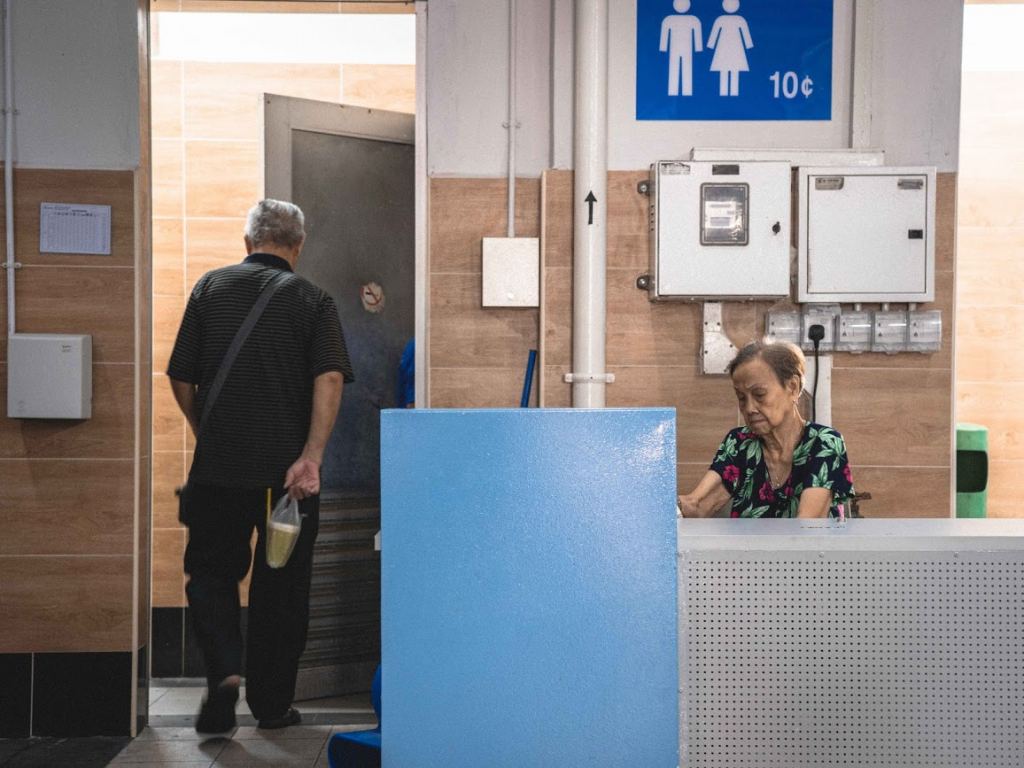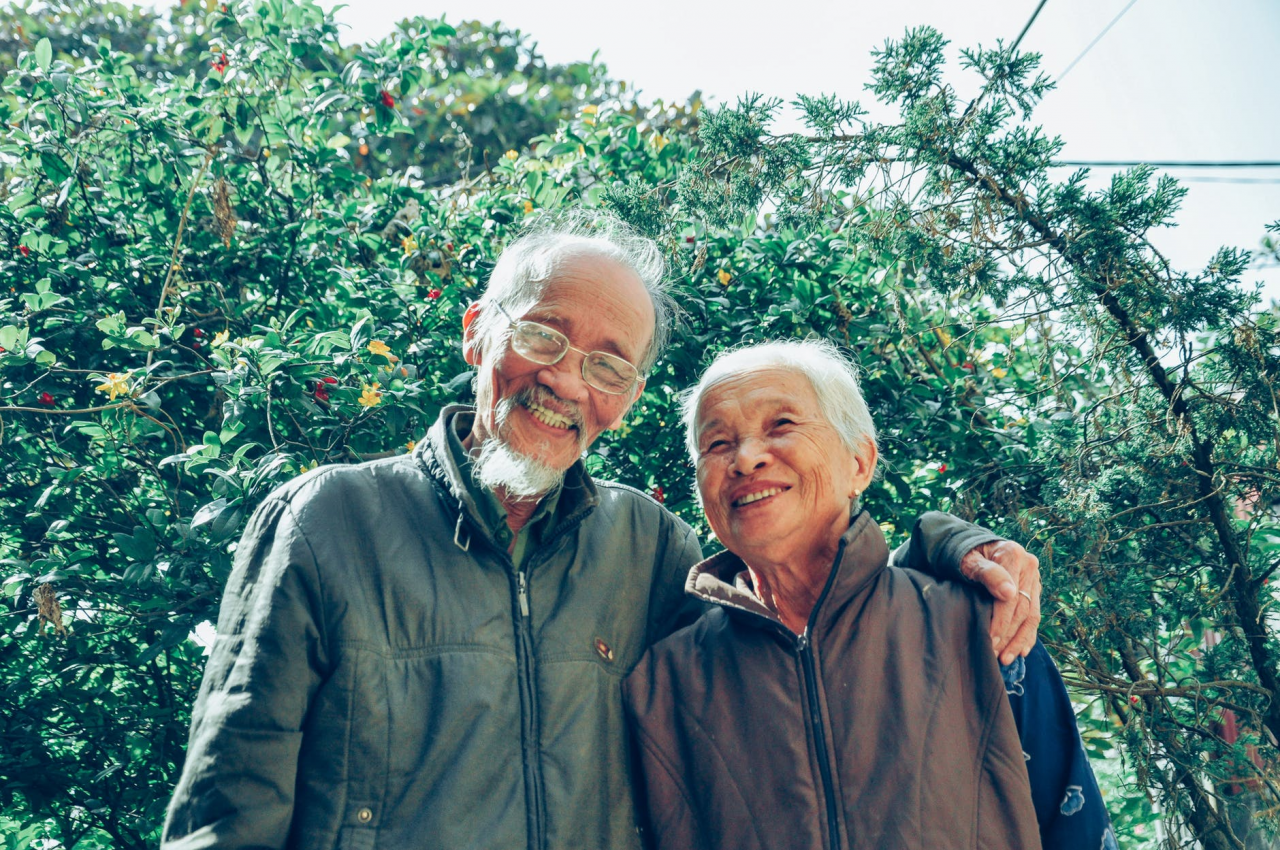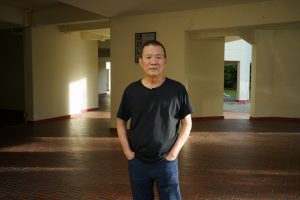Top image: Tristan Le on Pexels. All images Rice file photos by Zachary Tang unless otherwise stated.
Apart from some concerns from employers, the news has, for the most part, been met with crickets from the general public.
At first blush, this sounds surprising; one might’ve expected furious howls of, “Why is the government asking me to work longer??” (To be clear, they aren’t.) It becomes less so, however, when you consider that most people don’t think much about retirement to begin with.
Just ask any financial advisor or insurance agent: numerous surveys have shown that people generally don’t start thinking about retirement till they’re in their 40s. For anyone younger than that, retirement exists only in the abstract—a phase of life so distant it’s all but impossible to imagine.
As someone in my mid-20s, being 65 is just as inconceivable to me as being 62; those three extra years mean nothing to me now. You can’t really be upset when you can’t even contemplate the issue to begin with.
But more than that, if no one’s really up in arms about this policy change, it’s because it aligns with what we all know to be true: Singaporeans are living longer, and we will need to prepare for an ageing population with a greying workforce.
Singapore’s average life expectancy, projected to reach 84.8 by 2030, is amongst the highest in the world. With individual responsibility being a pillar of local policymaking, it’s broadly accepted that we (ie. the workforce) will have to do our part in working longer, managing our finances, and adjusting our lifestyles to match this.
Nonetheless, retirement itself is still seen as a kind of certainty—the Promised Land which awaits at the end of our decades of toil, with work itself a one-way train to bear us there.
In light of this, perhaps the questions worth asking have less to do with when we can expect to retire, but how we think of retirement in the first place.

Old people playing with their grandchildren in a sepia-lit living room. Old people lounging on a beach with a cerulean ocean in the background. Old people doing cool active-ageing things like going trekking or watercolour painting or saving up for an epic holiday to South America, à la Carl and Ellie from Up.
All these speak to an entrenched stereotype of retirement as a uniformly positive and uniformly desired experience, akin to spending the last 20 years of your life on vacation. Even the synonyms for retirement frame it in glowing, romanticised terms: we speak of one’s ‘golden years’ or ‘third age’.
Traditionally, working and not-working are thought of as a binary. Work is bad, or rather, undesirable; it’s something we have to do, a necessary tradeoff if we want to have food on the table and a roof over our heads, and very few have the luxury of not needing to do it. As the poet Ogden Nash put it, “If you don’t want to work you have to work to earn enough money so that you won’t have to work.”
“My parents talk about retiring ALL the time,” says one of my colleagues, whose parents turn 60 this year.
“I don’t know if they really enjoy their jobs, but they keep saying that they can’t wait to stop working, that they’re tired of work. I guess they just want to be able to do nothing for a change.”
(Which is an utterly relatable sentiment, whether you’re 60 or 26. Who hasn’t gotten up in the morning and thought: I wish I didn’t have to go to work today?)
In this vein, retirement—no longer having to work!—is generally thought of in a wholly positive light; our well-deserved reward for all those years of slaving away. However, this rose-tinted view also gives us massively unrealistic expectations about life after 62 (or 65).

A few months ago, I was catching up with a friend from university when the conversation turned to our parents. My friend’s father, now in his mid-60s, had just sold his business. Faced with nothing to do for the first time in decades, he was lost.
In my friend’s words, his dad was “super angsty. He’s just watching TV or wandering around the house with nothing to do.”
I laughed in understanding, because it sounded eerily similar to my own dad’s experience—or what it could have been. Several years ago, my dad had been seriously contemplating retirement: he was worn out, not terribly happy with the direction his employer had taken the company in, and just really wanted a break. After a couple of months’ hemming and hawing, he decided to quit his job, retire early, and spend time travelling, teaching, and taking it easy.
He made it all of two weeks before deciding to start his own business.
These are extreme examples, but retirement, or transitioning into it, is rarely as straightforward as we think it is. Research has consistently shown that it can trigger a kind of identity crisis, and this is only made worse by unrealistic expectations of how it should go.
For every older person who segues into it smoothly, there will be another like my friend’s dad: someone who expected to revel in liberation from the yoke of the daily grind, only to flounder without any structure to his days. Or someone who anticipates finally having time for ‘the things that matter’—family, friends, all the hobbies and trips they’ve been putting off—only to feel restless and unfulfilled.
In this vein, much as we look forward to retirement, it’s arguably not that we want to stop working and take a permanent holiday from life. To some degree, this is reflected by research; a recent survey of 300 older Singaporeans by the Centre for Seniors found that over half of them wanted to stay in full-time work.
Rather, the appeal of retirement seems to lie in two things: one, time (to spend as you choose), and two, control (you get to decide what you want to do, now that you don’t have to provide for your dependents or be answerable to your boss).
In other words, we don’t have issues with work per se. The problem is that we can’t have these things while also working.

This view of not-working as a vice goes beyond the stigma against unemployment. For retirees or people approaching retirement, it can manifest in fears of feeling ‘useless’ or ‘unproductive’.
In this vein, more so than in the past, work plays a significant role in identity formation. For many of us, what we do is inseparable from who we are; it’s the axis upon which our lives turn. This is particularly so if you endorse the notion of ‘finding your passion’ or ‘do what you love, love what you do’. The more you enjoy and take pride in your work, the more your sense of self (or self-worth) can be bound up with it.
To be sure, this depends a lot on individual circumstances and how you feel about what you do. Someone who doesn’t enjoy their job—say, if it’s hard or menial or unfulfilling—would probably find it far easier to keep their work and identity separate. And if you fundamentally think of work as a chore, you’d probably be quite happy to be done with it.
Equally, there are many for whom working into old age is a matter of financial necessity rather than personal choice. To this end, it’s impossible to separate issues of class, age, and gender from attitudes towards retirement.
But on the whole, our relationship to work—and by extension, retirement—is far more complicated and contradictory than we think. We fantasise about not having to work, but can feel quite guilty about not doing it. We are motivated to retire by the prospect of freedom, but remain attached to the security, familiarity, community, and purpose that work gives us.
And despite all of this, we still see retirement as some sort of age line, demarcating when we finally get to live life on our own terms, only to find ourselves untethered from who we think we are once we’re on the other side.
So why do we persist in glorifying something about which we are, in fact, ambivalent?

More than this, it’s impossible to say what retirement could look like by the time the new retirement and re-employment ages take effect. The future of work is now so unpredictable that no forum or white paper can address it with any certainty.
Consider the tremendous structural, cultural, and technological changes to work within the last few decades. The idea of working for the same employer for life, starting at the bottom of one company and slowly climbing your way to the top, is obsolete. In Singapore, around 20% of the full-time workforce is expected to have their jobs displaced by 2028; even high-skilled industries which seem relatively secure, such as law, are at risk from automation. And until fairly recently, freelancing was seen as something only writers and artists did or a stopgap solution while in-between jobs, rather than a viable way to forge a career.
Constructing a linear, coherent identity based on one’s work is now harder than ever. Even the notion of defining yourself according to what you do is falling out of favour; critiques of capitalism point to how it reduces the individual to a unit of labour, arguing that human worth can and should be based on more than what one does to earn a living. (There’s also an argument to be made that identity now depends on what one consumes as much as what one does.)
All this is to say: if we can barely speculate about what work will look like—however fluid or fragmented it might be—the notion of ‘traditional’ retirement looks equally precarious. As such, it’s worth re-evaluating what we think about it, and what we expect from it in the first place.
As every millennial understands, the line between adolescence and adulthood is murkier than it’s ever been. The changes to the future of work mean that a similar blurring will take place in late adulthood; ‘working’ or ‘no longer working’ will probably not be a useful binary around which to define ourselves.
However, we shouldn’t stop there. At the very least, we ought to ditch the monolithic, over-simplified notion of retirement as something to be fantasised about. We should ask: given our history of idealising retirement, what is it that we truly seek? And if the reality of it is far more complex than we’d like to admit, how can we work this into the age-old question of what it means to live a meaningful life?
“What do you want to do with your life?” is often thought of as a young person’s question—that existential issue you grapple with through school and your early 20s, and perhaps even your early 30s. But retiring the ideal of retirement as we know it means this question will remain relevant long after this. We will need to ask it in our 50s and 60s, too.
But hey, as my alma mater’s motto put it: nothing without labour.







